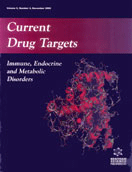Abstract
The innate immune system is the oldest mammalian defence against invading micro-organisms and provides the first line of defence against them, however until recently a detailed understanding of its complexity has been lacking. This review describes recent advances that have been made in understanding the components of the innate immune system, including the pathogen sensing mechanisms, receptor and intracellular signalling pathways, linkage to the acquired immune system, and effectors of the innate immune response. These discoveries have created an opportunity for the development of novel drugs through the identification of targets for rational drug design. The opportunity for the development of novel anti-inflammatory and antimicrobial drugs through modulation of pro-inflammatory or antimicrobial signals within the innate immune system, are discussed. A more detailed understanding of the effectors of the innate immune system is providing an opportunity for the design of effector mimetics as novel antimicrobial drugs. The innate immune system is providing the basis for much-needed alternative approaches to controlling infection and inflammation in human medicine.
Keywords: host defence, antimicrobial, tlr, toll-like receptor, signalling, pathogen detection
 2
2


















